Intro
New Covid variants emerge, sparking concerns. Mutations, strains, and outbreaks drive vaccine updates, masking mandates, and travel restrictions to combat transmission and infection rates.
The world has been dealing with the COVID-19 pandemic for over two years now, and it seems like the virus is still evolving and spreading rapidly. The emergence of new COVID variants has become a major concern for health experts and governments around the globe. These new variants have raised questions about the effectiveness of current vaccines, the severity of the disease, and the potential for future outbreaks. As the situation continues to unfold, it's essential to stay informed about the latest developments and what they mean for our collective health and wellbeing.
The COVID-19 pandemic has already caused unprecedented disruption to our lives, from lockdowns and travel restrictions to economic instability and social distancing measures. The emergence of new variants has added another layer of complexity to the situation, making it challenging for health authorities to keep up with the evolving landscape. With new variants coming to light, it's natural to feel concerned about the potential risks and consequences. However, by understanding the science behind these variants and the measures being taken to combat them, we can better navigate this uncertain terrain.
As we delve into the world of new COVID variants, it's crucial to recognize the significance of this topic and its far-reaching implications. The COVID-19 pandemic has taught us that global health security is a collective responsibility, requiring cooperation, coordination, and a commitment to science-based decision-making. By exploring the latest research, data, and expert insights, we can gain a deeper understanding of the emerging variants and what they mean for our future. Whether you're a healthcare professional, a policy-maker, or simply a concerned citizen, this topic is relevant to us all, and it's essential to stay informed and engaged.
New Covid Variants Emerging: What You Need to Know
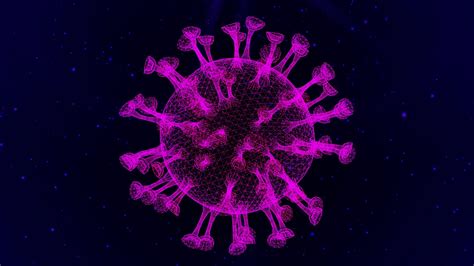
The COVID-19 pandemic has been characterized by the emergence of several variants, each with its unique characteristics and transmission patterns. The World Health Organization (WHO) has identified several variants of concern, including the Alpha, Beta, Gamma, and Delta variants. These variants have been associated with increased transmissibility, severity, and immune evasion, making them a significant concern for global health authorities. Understanding the differences between these variants and how they impact our health is crucial for developing effective strategies to combat the pandemic.
Types of Covid Variants
The COVID-19 virus has undergone several mutations, resulting in various variants with distinct genetic profiles. Some of the most notable variants include: * Alpha variant: First identified in the UK, this variant is associated with increased transmissibility and severity. * Beta variant: Detected in South Africa, this variant has been linked to immune evasion and reduced vaccine effectiveness. * Gamma variant: Identified in Brazil, this variant has been associated with increased transmissibility and severity. * Delta variant: First detected in India, this variant has been linked to increased transmissibility, severity, and immune evasion.How Covid Variants Emerge
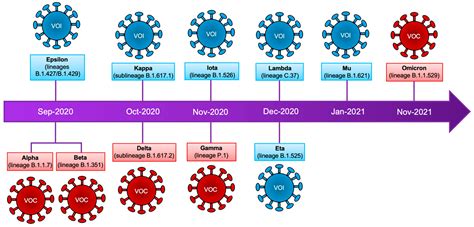
The emergence of new COVID variants is a complex process, involving multiple factors and mechanisms. One of the primary drivers of variant emergence is the error-prone nature of the COVID-19 virus's replication process. As the virus replicates, it can introduce random errors into its genetic code, resulting in mutations that can lead to the formation of new variants. Additionally, the COVID-19 virus can undergo recombination, where it exchanges genetic material with other viruses, potentially creating new variants with unique characteristics.
Factors Contributing to Variant Emergence
Several factors contribute to the emergence of new COVID variants, including: * High transmission rates: The more the virus spreads, the greater the opportunity for mutations to occur. * Low vaccination rates: Areas with low vaccination rates provide a fertile ground for the virus to mutate and spread. * Global connectivity: The rapid movement of people and goods around the world can facilitate the spread of new variants. * Animal reservoirs: The COVID-19 virus can infect animals, potentially creating a reservoir for the virus to mutate and emerge in new forms.Impact of Covid Variants on Global Health
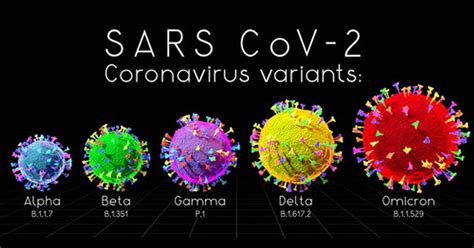
The emergence of new COVID variants has significant implications for global health, from increased transmission rates to reduced vaccine effectiveness. The Delta variant, for example, has been associated with a significant increase in hospitalizations and deaths, particularly among unvaccinated individuals. Furthermore, the emergence of new variants can undermine the progress made in controlling the pandemic, requiring health authorities to adapt and update their strategies to combat the evolving landscape.
Consequences of Variant Emergence
The consequences of variant emergence can be far-reaching, including: * Increased transmission rates: New variants can spread more easily, leading to a surge in cases and hospitalizations. * Reduced vaccine effectiveness: Some variants may be able to evade the immune system, reducing the effectiveness of current vaccines. * Increased severity: Certain variants may be associated with more severe disease, leading to increased hospitalizations and deaths. * Economic disruption: The emergence of new variants can lead to renewed lockdowns, travel restrictions, and economic instability.Measures to Combat Covid Variants
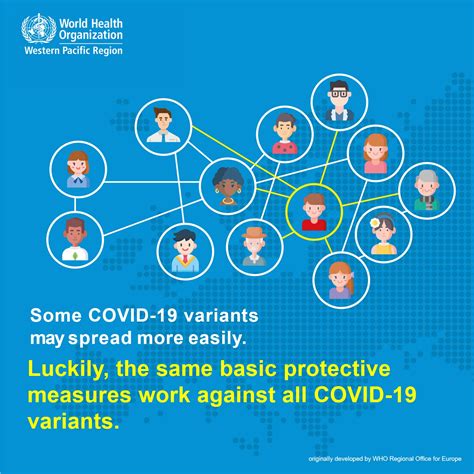
To combat the emergence of new COVID variants, health authorities and individuals must take a multi-faceted approach, incorporating vaccination, testing, contact tracing, and public health measures. Vaccination remains a critical tool in controlling the pandemic, with vaccines providing protection against severe disease and hospitalization. Additionally, testing and contact tracing can help identify and isolate cases, reducing the spread of new variants.
Strategies to Control Variant Spread
Some effective strategies to control the spread of new variants include: * Vaccination: Vaccines can provide protection against severe disease and hospitalization, reducing the spread of new variants. * Testing and contact tracing: Identifying and isolating cases can help reduce the spread of new variants. * Public health measures: Mask-wearing, social distancing, and hygiene practices can reduce transmission rates. * Global cooperation: International collaboration and data-sharing can facilitate the development of effective strategies to combat new variants.Future Directions and Challenges
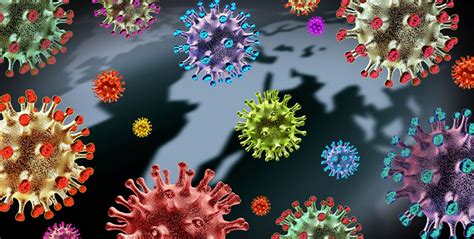
As we look to the future, it's clear that the COVID-19 pandemic will continue to evolve, with new variants emerging and posing challenges to global health. To stay ahead of the curve, health authorities and researchers must prioritize vaccine development, surveillance, and data-sharing. Additionally, individuals must remain vigilant, adhering to public health measures and staying informed about the latest developments.
Challenges Ahead
Some of the challenges we can expect to face in the future include: * Vaccine updates: As new variants emerge, vaccines may need to be updated to ensure continued effectiveness. * Global inequity: Disparities in vaccine access and healthcare infrastructure can exacerbate the spread of new variants. * Pandemic fatigue: As the pandemic drags on, individuals may become complacent, reducing adherence to public health measures. * Animal reservoirs: The potential for animal reservoirs to harbor and transmit new variants poses a significant challenge to controlling the pandemic.Conclusion and Next Steps
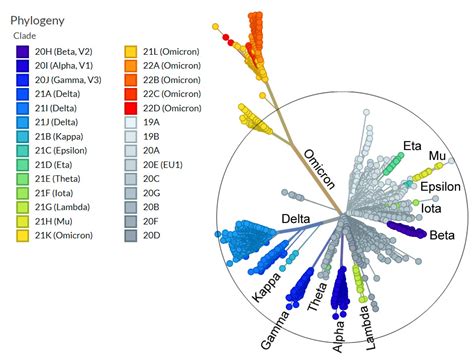
In conclusion, the emergence of new COVID variants is a complex and evolving issue, requiring a comprehensive and coordinated response. By understanding the science behind these variants and the measures being taken to combat them, we can better navigate this uncertain terrain. As we move forward, it's essential to prioritize global cooperation, vaccine development, and public health measures to control the spread of new variants.
We invite you to share your thoughts and questions about the emergence of new COVID variants. How can we work together to combat the spread of these variants and ensure a safer, healthier future for all? Share this article with your friends and family to raise awareness about the importance of global health security and the need for continued vigilance in the face of emerging variants.
What are the most common COVID-19 variants?
+The most common COVID-19 variants include the Alpha, Beta, Gamma, and Delta variants, each with its unique characteristics and transmission patterns.
How do COVID-19 variants emerge?
+COVID-19 variants emerge through a combination of factors, including the error-prone nature of the virus's replication process, recombination, and high transmission rates.
What can I do to protect myself from COVID-19 variants?
+To protect yourself from COVID-19 variants, get vaccinated, practice social distancing, wear a mask, and follow public health guidelines and recommendations from local health authorities.
